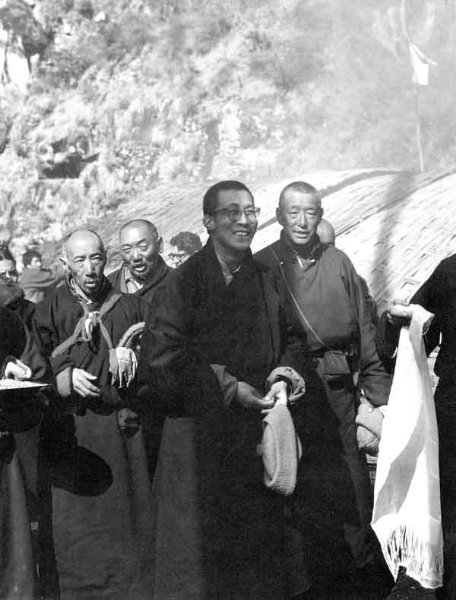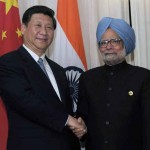IDR Blog
Dalai Lama is India's boon, not bane
New Delhi, India – Is the Dalai Lama’s presence in India a major impediment to the growth of normal relations between India and China? To put the question differently, would growing tensions between Asia’s two most powerful countries ease considerably and their vexing boundary dispute be solved amicably if the Dalai Lama were asked by India to leave the country?
The question is highly relevant in light of the Dalai Lama’s weeklong visit to India’s Arunachal Pradesh state last week, which included three days at the world-famous Tawang monastery.
China has never liked the Dalai Lama’s presence in India and has always accused India of allowing him to promote his “separatist” agenda.
China, which claims the region as its territory, predictably used the occasion to generate heat in Sino-Indian relations. It condemned the visit, saying the Dalai Lama was “sabotaging” China’s relations with India.
The Dalai Lama, Tibet’s highest spiritual and political leader who has been living in exile in India since 1959, is a “separatist” for China but an “honored guest” of India, which has provided him asylum to carry on his “spiritual” activities in the country. Although his “government-in-exile” in Dharamsala in Himachal Pradesh state is permitted, he and his followers are not allowed to indulge in political activities.
China has never liked the Dalai Lama’s presence in India and has always accused India of allowing him to promote his “separatist” agenda. His trip to Tawang, his fifth since 1959, upset the Chinese because his very presence there made it clear that Tawang and the rest of Arunachal Pradesh belong to India. In fact, China had exerted pressure on India to disallow the Dalai Lama to visit Tawang, but India consented to the visit, explaining it was for religious purposes.
Coming back to the question raised at the outset, there is now a powerful school of thought in India that it is time for the Dalai Lama to leave India. In an opinion poll carried out last year by the influential Outlook weekly magazine, as high as 71 percent of the nearly 600 respondents said that hosting the Tibetan leader had adversely impacted India-China relations and almost half believed Beijing could retaliate by giving sanctuary to Indian militants in its territory.
Swamy has argued in his book “India’s China Perspective” that Sino-Indian relations can never become close and friendly unless Indias blind spot on Tibet and the Dalai Lama is removed.
Along with powerful politicians from India’s two communist parties, the likes of former Minister of External Affairs Kunwar Natwar Singh, former Commerce Minister Subramaniam Swamy, media baron N. Ram and influential columnist Prem Shankar Jha have systematically argued that China has not been able to solve its Tibet problem because of India, which has given the Dalai Lama shelter and kept the Tibetan political and cultural identity alive.
Swamy has argued in his book “India’s China Perspective” that Sino-Indian relations can never become close and friendly unless India’s blind spot on Tibet and the Dalai Lama is removed. He advocates that India has to “digest and internalize” the view that the “shortest political route to Lhasa is via Beijing, and not across the Himalayas.”
In any case, Swamy says, when Tibet was autonomous or independent from China between 1890 and 1950, it was never friendly with India and had laid claims to the Indian states of Sikkim and Arunachal Pradesh as well as Bhutan.
This school of thought argues that Tibet is strictly China’s domestic matter and India should not directly or indirectly raise Chinese suspicions. It views China as a peace-loving country, having solved boundary disputes with all its neighbors except India, and predicts that if the Dalai Lama leaves India or his activities there are curtailed, China will be flexible in border negotiations. In fact, the logic is, a “grateful” China will rethink its blind support to Pakistan, which is India’s most problematic neighbor.
Indian friends of China point out that continued support of the Dalai Lama could boomerang against India. They ask, is China not capable of promoting Kashmiri, Assamese, Naga and Punjabi secession from India? According to these China supporters, it is worth sacrificing the Dalai Lama to avoid a future conflict and possible joint attack by Pakistan and China.
The pro-China lobby in India downplays the fact that while China promotes a multipolar world, it is not interested in a bipolar Asia.
These arguments are based on two unstated premises. First, China is much more powerful than India and so it is better to buy peace with Beijing and leave the Dalai Lama to face his own fate. Second, in this bipolar world, China is best suited to challenge U.S. “hegemony” and make the world truly multipolar. So India must be friendly to China. Of course, the overwhelming majority of Indians wanting to befriend China hate the United States.
However, neither of these premises is convincing. To argue that India is militarily weak and should surrender to China is insulting the country, its armed forces and strength, which many unbiased security analysts argue to be as good as, if not better than, China’s. It is no longer 1962, when China went to war with India.
The pro-China lobby in India downplays the fact that while China promotes a multipolar world, it is not interested in a bipolar Asia. True to its theory of being the Middle Kingdom, it will not allow another pole, whether India or Japan, in Asia. Historically speaking, China has done everything possible to halt the growth of Indian influence and dent India’s eminence. This policy toward India will continue whether or not New Delhi appeases Beijing on the Dalai Lama issue.
On the other hand, by continuing to shelter the Dalai Lama and his followers, India stands to gain more. First, his presence adds to India’s standing in the global community as a democratic country, given the Dalai Lama’s innumerable powerful supporters around the world. It strengthens India’s credentials for offering political asylum to democratic leaders escaping and fighting oppressive authoritarian regimes.
India cannot just sever its historical and cultural links with Tibet to please the Chinese. India is bound with Tibet, as two of the holiest Hindu shrines, Mount Kailash and Lake Manasarovar, are located there. Tibet is also the source of four great rivers that flow into India.
The nearly 200,000 Tibetan refugees in India are not a burden on the country, unlike the more than 20 million illegal immigrants from Bangladesh and thousands of refugees from Sri Lanka and Afghanistan.
In fact, economically, the Tibetan refugees are self sufficient due to their many entrepreneurial activities. Unlike other refugees, they have not created a law-and-order problem in the country and none have aspired for Indian citizenship, making it clear that they would return to their land if China guaranteed them genuine autonomy and stopped suppressing their culture and way of life.
India cannot just sever its historical and cultural links with Tibet to please the Chinese. India is bound with Tibet, as two of the holiest Hindu shrines, Mount Kailash and Lake Manasarovar, are located there. Tibet is also the source of four great rivers that flow into India.
The Dalai Lama has also periodically pointed out that the Tibetans are descendants of Rupati, king of a south Indian kingdom who escaped to Tibet with his subjects after the epic Mahabharata War. As for the king of Tibet, it is believed that around 150 BC a prince of the Magadha Kingdom (present-day Bihar state) escaped to Tibet after being exiled from his kingdom. Tibetans named him Nyatri Tsenpo and made him their king, and so began the Tibetan royal lineage. A closer look at geography, ancestry and royal dynasties reveals close ties between India and Tibet.
In fact, whether it was Britain until 1947 or the former Soviet Union until 1990, the recent history of international relations suggests that other countries have always considered Tibet as belonging to “India’s sphere of influence.”
Finally, and most importantly, the presence of the Dalai Lama and his innumerable assertions supporting India on the boundary disputes strengthens India’s claims of territorial rights during negotiations with China.
Post your Comment
One thought on “Dalai Lama is India’s boon, not bane”
 Loading Comments
Loading Comments





To begin with, there should be no debate over the status of Dalai Lama and Tibetan refugees in India. He is most revered and the tibetans are most beloved to Indians. Its a blessing to our nation that Dalai Lama has chosen to live in India. He will get red carpet welcome in the west anytime. Its against the Indian ethos and values to even think of sending back the asylum seekers for personal or national gains whether they be from Afghanistan, Srilanka, Bangladesh or Tibet.
It will be another blunder to think that China will not claim Arunachal and return Aksai chin if we disrespect Dalai Lama. Its also deplorable that people think that giving asylum to peaceful peoplewill strain relationship between two nations. Are tibetans using Indian land to carry out terrorist attacks in China? Has Dalai Lama been accused of any violence? Is India supporting separatism in China by sheltering Dalai Lama? Why and how is this comparable with chinese ability to create troubles in indian states in north east?
India recognizes Tibet as part of China. China must respect that and not bring the matter of asylum between the bilateral relations. A bilateral relation will not be sustainable if India has to compromise on her basic socio-religious values by dishonouring those whom she has given asylum, more so, when the asylum seekers have been most respectful to the people and laws of the land.
Reading this article has been very disturbing and I hope there is no dispute about Dalai Lama in the minds of Indians.